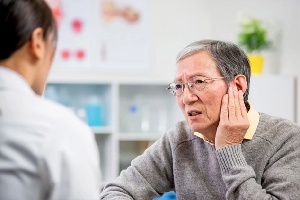- Home - News
- Elections 2024
- News Archive
- Crime & Punishment
- Politics
- Regional
- Editorial
- Health
- Ghanaians Abroad
- Tabloid
- Africa
- Religion
- Photo Archives
- Press Release
Health News of Friday, 21 March 2025
Source: www.ghanawebbers.com
How Aging Affects Your Hearing - The Ghanaian Chronicle
As people age, they often experience changes in their hearing abilities, a condition known as presbycusis. This gradual decline typically begins around the age of 60 and can be influenced by various factors, including genetics, exposure to loud noises, and overall health. The inner ear structures may deteriorate over time, leading to difficulties in distinguishing sounds and understanding speech, particularly in noisy environments.
Additionally, aging can affect the auditory nerve pathways that transmit sound signals to the brain. This results in challenges not only with hearing but also with processing sounds effectively. Individuals may find it harder to follow conversations or identify where sounds are coming from. Social isolation and cognitive decline can further exacerbate these issues, making it crucial for older adults to seek regular hearing assessments.
To mitigate the impact of aging on hearing, proactive measures such as protecting ears from loud noises and maintaining overall health are essential. Hearing aids and assistive listening devices can significantly improve quality of life for those experiencing hearing loss due to aging. Regular check-ups with audiologists can help monitor changes and provide necessary interventions.











